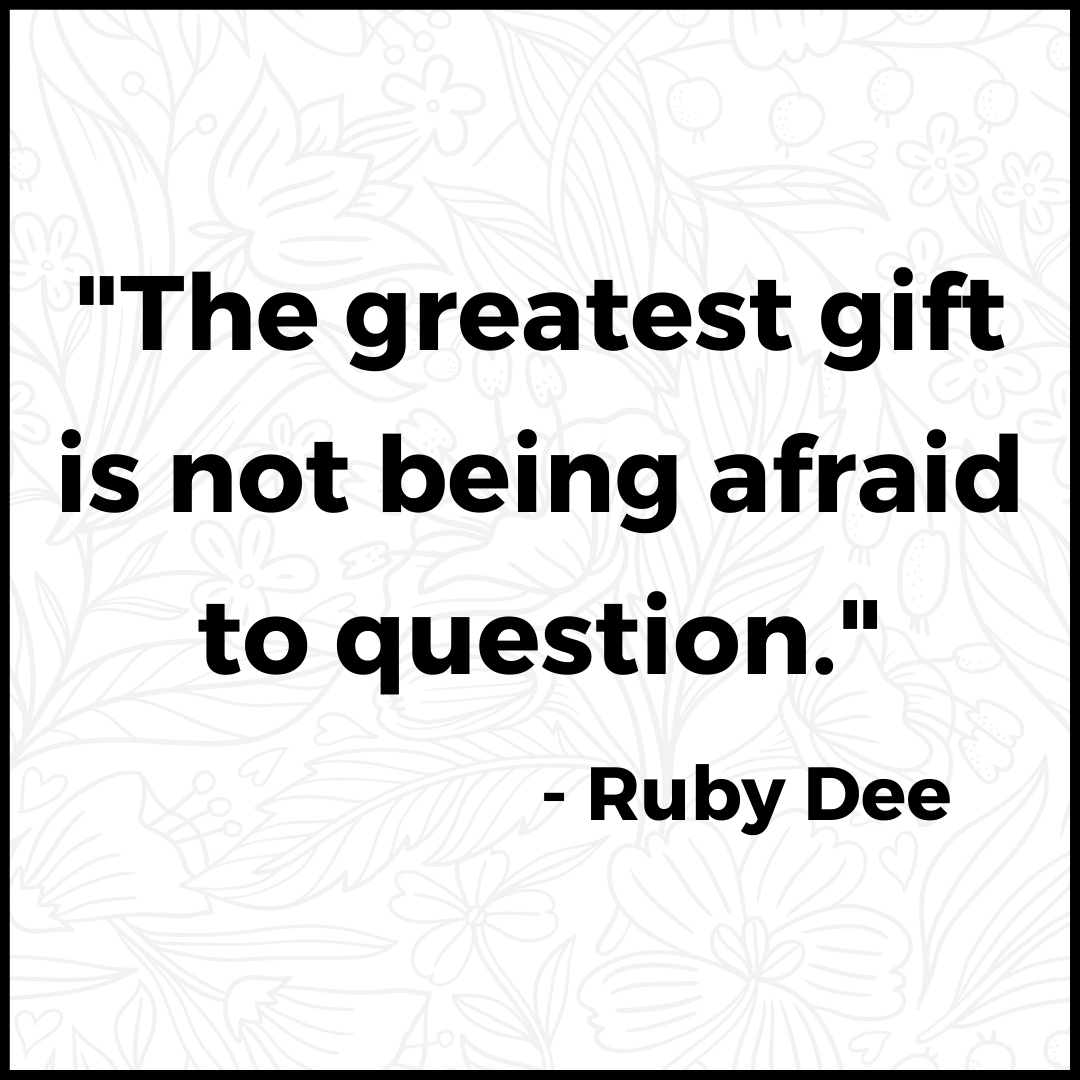Why Start with a Question?
Key Outcomes
By the end of this chapter, you will be able to
- Understand the concept of inquiry.
- Explain how inquiry happens in writing and other modes.
- Apply inquiry skills through question development.

The quotation on the left is attributed to Ruby Dee—an American actress, playwright, journalist, and civil rights activist—and it captures a sentiment that countless cultural icons and brilliant minds have clung to when facing adversity: our ability to ask questions is an important, sometimes life-changing gift.
Dee’s sentiment has been followed by other trailblazers in popular culture and science, including Hidden Figures mathematician Katherine Johnson, First Lady Michelle Obama, media mogul Oprah Winfrey, and theoretical physicist Albert Einstein. These great minds found fame and success by being willing to pose questions no one else wanted to ask. And because they asked creative, challenging questions, society has transformed in exceptional ways.
In the spirit of such bold inquiry, this textbook is organized in terms of questions to guide your thinking about writing. You might be thinking to yourself, “Wait, this textbook is asking me questions? Isn’t a textbook supposed to give students answers?”
Yes, but also no. While many textbooks are designed to give students more answers than questions, writing classes are a little different from other classes you’ll take in college. A writing class is a space to wonder, explore, and inquire into ideas and concepts that benefit you personally, academically, and professionally. And, whether you realize it or not, when you write, you almost always begin with a question. Some of us are more cognizant of the questions that motivate us to unearth new knowledge through writing. Others may be less aware of the questions that guide us. Nevertheless, questions are always present; questions always shape how we process information and inquire.
